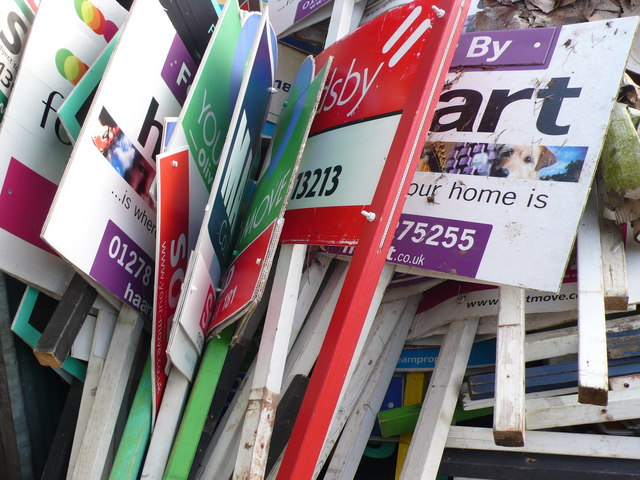
The UK government just admitted housing is broken
When is a house more than just a house? When it’s “housing”.
Housing is one of the government’s favourite buzzwords. And to be honest, it’s not just politicians. It gets talked about all the time, from parliament, to the media, to pub-table moaning about your landlord with your friends on Friday night. There are huge campaigns about it and entire charities devoted to it.
So, the government has finally decided to tackle it. And it's about time. As he was delivering the government's big housing white paper, 'Fixing our broken housing market', to parliament, Sajid Javid, the UK’s Communities Secretary, said that average house prices are now seven times the average income and that many renters now spend more than half of their take-home pay on rent - sounds familiar.
Whether the subject angers you, terrifies you or fascinates you – it’s a pretty big deal in the UK at the moment.
100 million pages of government speak. What does the Housing White Paper actually say?
The government makes a few main points in the plan. It identifies that the system is “broken” and blames that on a lack of houses being built. It says it wants to make it easier for people to save to buy a house, and make it fairer and more secure for those who want to rent.
Simples? Not so simples. Here are a few of our favorite (not so favorite) lines of incomprehensible government lingo and what they actually mean – (and this is just from the press release –we wouldn’t wish the actual report on anyone…!)

“Diversification of the housebuilding market”
Ermmm, basically, around 60% of new homes are built by just 10 companies. The government thinks that’s bad, and wants to encourage smaller building companies to play a bigger role, so it’s going to give them money to do just that.
The government also highlighted that some developers were buying land and hoarding it. Britain is really short of land for building. Land with planning permission for houses is currently worth about £6m ($7.5m) per hectare (10,000 square metres), and the value is increasing. All developers have to do is buy it up and sit on it for a while, watching the money roll in without even having to bother to build. The white paper promised a crackdown on this.
“This includes amending planning rules so councils can proactively plan for more long-term Build to Rent homes and a consultation has been launched to allow developers to offer more affordable rent alongside other forms of affordable housing. Also ensuring more longer-term tenancies are available in private rented schemes to provide more stability to families renting.”
This is a bit of a change of heart for the government, who until last November seemed to be focusing all its attention on encouraging people to buy houses. What it’s saying now is that it’s hoping to change the rules so councils and house builders can focus more on renting houses to people, as well as on building affordable houses for people to buy.
In the Autumn Statement last year, Chancellor of the Exchequer – i.e. the man (it’s always a man) who manages the money – Philip Hammond said he would be outlawing renting agency fees, to make the rental system fairer. They repeated that promise in this white paper, adding an extra line on promising to make renting more affordable:
"The government will put measures to tackle the high cost of renting at the heart of its plan to fix the broken housing market."

“The plan for ‘Urban Regeneration’ includes: strengthening national planning policy to create a ‘de facto’ presumption in favour of housing on suitable brownfield land and to drive up density levels in high demand areas while ensuring that developments are well-designed and respect the character of the local area.”
I mean, lol. There aren’t any full stops in that entire thing. This basically means that development will focus on urban areas and on land that had previously been used for industry, rather than the “green belt” (the countryside around cities).
Building on green belt land is currently restricted, and the government isn't lifting any of those restrictions. It’s saying we have to fit more people into the space that is already available for building. Basically, build smaller and taller.
The “de facto presumption” bit means that it might not necessarily be written into law, but it should be taken as such.

What are people saying about it?
Basically, people think it doesn’t go far enough. The Labour MP John Healey called it “feeble beyond belief” in his response, and said the government had "given up" on helping people buy houses.
Generation Rent, a group which represents the rights of renters, said that although Sajid Javid was right to focus on “the plight of renters”, but said it only offered “the bare minimum”.
It said, “Until the government builds enough to overcome the housing shortage, high rents will continue to stifle living standards. Renters on stagnant wages need homes that cost no more than a third of their income, not ones let at 80% of the market rent, with a sticker that says ‘affordable’.”
So is anything going to change?
The paper is basically just a bit more detail on the policies that would help the government follow through on its promise to make the housing market fairer. Housing policies had already been announced – the idea of banning agency letting fees for example. This document just repeated a lot of them, and added some new ones.



